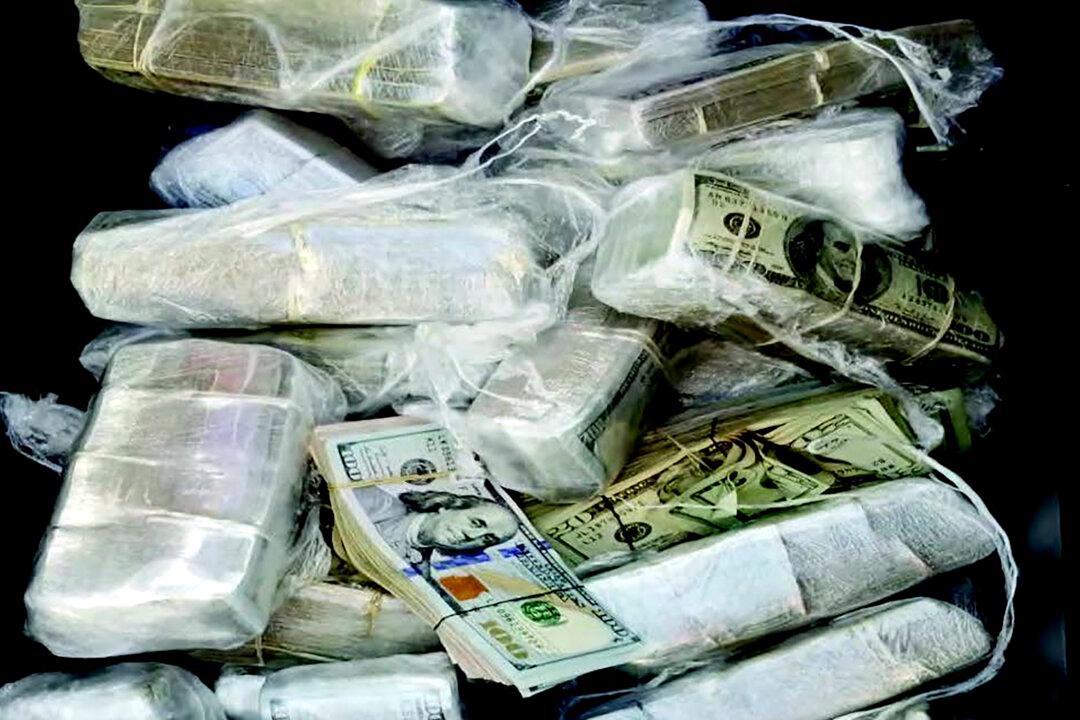The Department of Justice (DOJ) alleged Tuesday that Mexico’s Sinaloa drug cartel, blamed for the influx of fentanyl into the United States, has conspired with groups linked to “Chinese underground banking” to launder more than $50 million in drug proceeds.
A multi-year investigation dubbed “Operation Fortune Runner” has resulted in the superseding indictment of 24 defendants, identified as Sinaloa associates in Los Angeles, the DOJ said.





